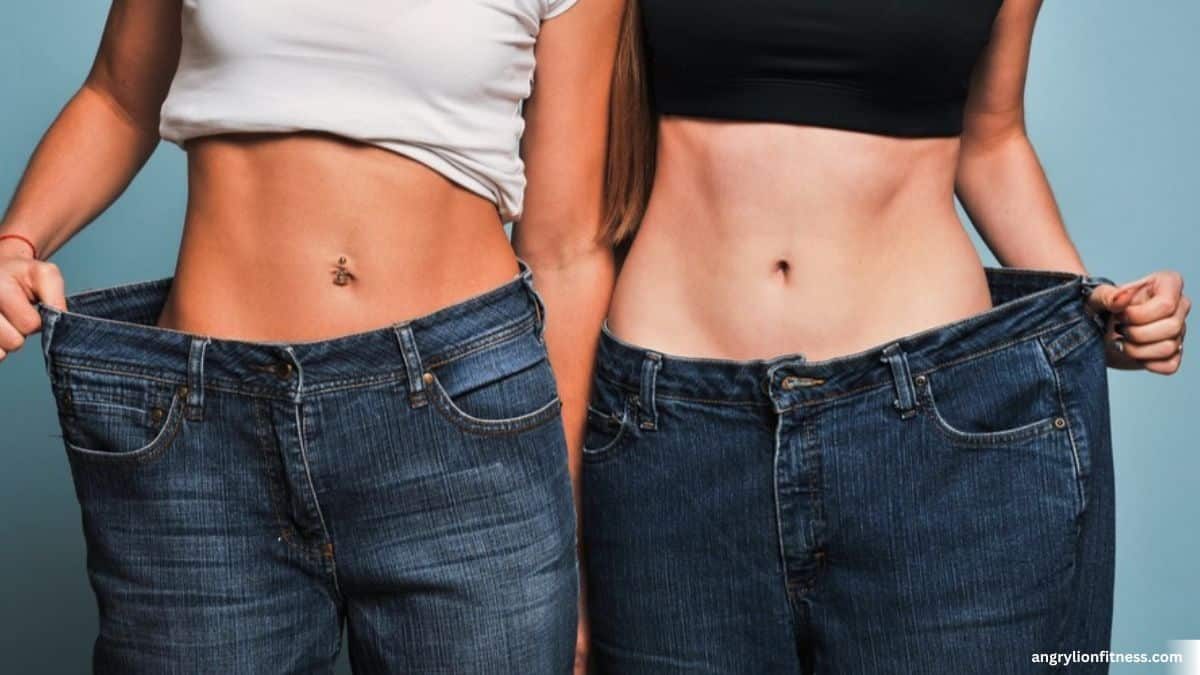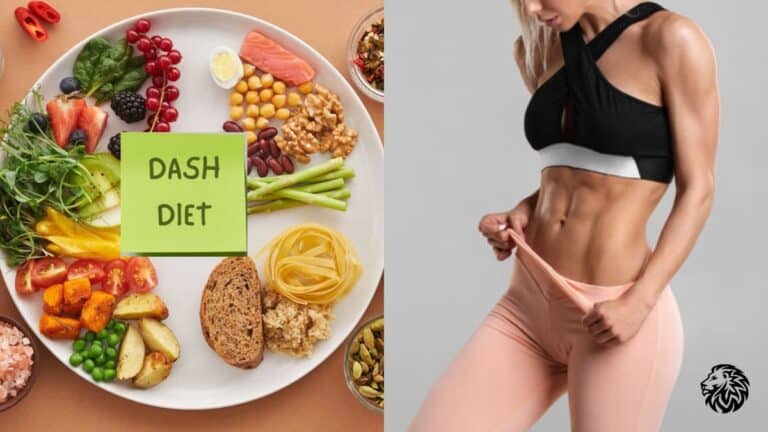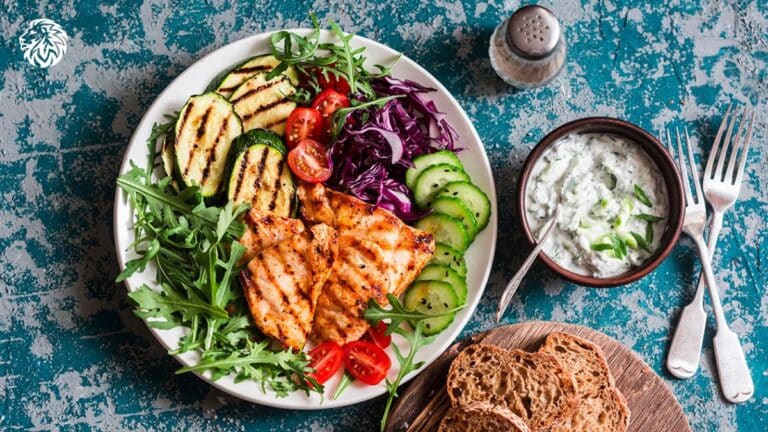key takeaways:
- Recognize your caloric requirements to determine daily caloric intake for safe and sustainable weight loss
- Emphasize foods high in protein to feel fuller for longer, support muscle tissue repair, and maintain metabolism
- Include a lot of fruits and vegetables in your diet to lower the risk of chronic illnesses and feel satisfied without consuming too many calories
- Select complex carbs over simple carbs, and steer clear of processed foods and sugary beverages to avoid blood sugar spikes and overeating
- Arrange your snacks and meals, maintain hydration, exercise regularly, and think about hiring a professional to assist with a personalized plan and support along the way.
Many people have the common goal of losing weight, but it can be difficult to know where to begin. It’s important to realize that if you want to lose a lot of weight quickly, you’ll need to make some major changes to your eating routine. The best foods to eat to support weight loss are discussed in this article, with a focus on how to lose 20 pounds in two weeks.
1. Recognize your caloric requirements
Understanding your daily caloric needs is crucial before beginning any weight loss program. You can use this information to calculate how many calories you should take in daily to lose weight safely and sustainably. Your age, sex, height, weight, and level of activity all factor into how many calories you need each day.
You can estimate your daily caloric needs with the help of a number of online calculators. Using this knowledge, you can reduce your calorie intake below what your body requires to maintain your current weight. One pound of weight can be lost each week with a 3,500 calorie calorie deficit.
2. Emphasis on Foods High in Protein
Protein is a necessary nutrient that is essential for losing weight. A high-protein diet can make you feel fuller for longer and help you consume fewer calories overall. Lean meats, fish, eggs, nuts, and beans are a few high-protein foods to include in your diet.
In addition to making you feel satisfied, protein is necessary for repairing and constructing muscle tissue. Frequently, along with fat, muscle mass is lost when you lose weight. A high-protein diet can help you stop this muscle wasting and keep your metabolism steady.
3. Include a lot of fruits and vegetables in your diet
Fruits and vegetables are a great addition to any weight loss plan because they are low in calories and high in fiber. Without consuming many calories, they can aid in making you feel satisfied. Leafy greens, berries, apples, and carrots are a few excellent alternatives.
Fruits and vegetables are low in calories and rich in vitamins, minerals, and antioxidants that are crucial for overall health. Your risk of developing chronic illnesses like cancer and heart disease can be lowered with their aid.
4. Select complex carbs
Any diet should include carbohydrates, but if you want to lose weight, it’s critical to pick the right kind of carbohydrates. Sugar and refined flour are examples of simple carbohydrates that can cause blood sugar levels to spike, increasing hunger and cravings. They are typically also high in calories and low in nutrients.
On the other hand, complex carbohydrates are digested gradually, giving you a steady supply of energy and extending your feeling of fullness. They typically contain a lot of fiber and other nutrients. Whole grains, sweet potatoes, and brown rice are a few excellent alternatives.
5. Steer clear of processed foods and sugary beverages
Processed foods and sugary drinks are not the best options for weight loss because they are high in calories and lacking in nutrients. Additionally, these foods can raise blood sugar levels, which can increase appetite and cravings. Considerations for substitutes include whole foods, unsweetened tea, and water.
6. Arrange Your Snacks and Meals
You can stay on track with your weight loss goals by planning your meals and snacks. To avoid reaching for unhealthy options when you’re hungry, it’s a good idea to keep healthy snacks like fresh fruit or nuts on hand. Additionally, meal planning can be useful because it guarantees that you have time-saving healthy options available.
It’s crucial to take your calorie intake and nutrient requirements into account when organizing your meals and snacks. To feel full and satisfied, aim for a balance of protein, complex carbohydrates, and healthy fats. To assist you in sticking to your goals, you might also think about using a food journal or meal planning app.
7. Maintain hydration
For weight loss, staying hydrated is crucial because it can make you feel fuller and help you avoid overeating. A great way to stay hydrated is to drink water frequently throughout the day. Foods with a high water content, like cucumbers and watermelon, can also be incorporated into your diet.
In addition to drinking water, it’s crucial to keep your intake of sugary beverages like soda and fruit juice to a minimum. These drinks can hinder your attempts to lose weight because they are high in calories. Choose low-calorie beverages like water or unsweetened tea as an alternative.
8. Regular exercise
Exercise can help with weight loss, though diet is still the most crucial element. You can lose weight and maintain muscle mass by engaging in regular physical activity, which is crucial for long-term weight loss. Five days a week, try to work out for at least 30 minutes each day.
You can get the best results by combining cardiovascular and strength training exercises. Running, cycling, swimming, weightlifting, and yoga are a few excellent options. To help you stay motivated and engaged, choose activities you enjoy.
9. Think About Hiring a Professional
It’s important to approach the difficult goal of losing 20 pounds in two weeks in a safe and responsible manner. Think about collaborating with a registered dietitian or other medical expert who can assist you in creating a personalized plan that takes into account your unique needs and objectives.
A medical expert can also assist in tracking your development and offer support and direction along the way. They can assist in making sure you’re getting the nutrients you require and can modify your plan as necessary to help you reach your objectives.
Conclusion
It’s an ambitious goal that calls for a significant change in eating habits to lose 20 pounds in two weeks. You can achieve your weight loss objectives by including high-protein foods, lots of fruits and vegetables, complex carbohydrates, and staying hydrated. To make sure you’re approaching your weight loss journey safely and effectively, don’t forget to exercise frequently and think about working with a professional.
Even though losing weight can be difficult, it’s crucial to go about it in a way that promotes long-term health and wellbeing. You can reach your weight loss objectives and sustain a healthy weight for years by making healthy, long-lasting changes to your diet and lifestyle. Always be persistent, remain dedicated, and recognize your accomplishments as you go.
FAQ’s
Losing 20 pounds in two weeks is it safe?
A very aggressive goal, losing 20 pounds in two weeks might not be safe for everyone. Numerous health issues, such as nutrient deficiencies, dehydration, and gallstones, can result from rapid weight loss. It’s crucial to approach weight loss cautiously and collaborate with a healthcare expert to create a customized plan that takes into account your unique needs and objectives.
It’s critical to lose weight quickly in a sustainable and healthy manner if you want to do so. This could entail eating wholesome, healthy foods, drinking plenty of water, and working out frequently. Additionally, it’s crucial to stay away from extreme calorie restriction and crash diets, which can be detrimental to your health and ultimately ineffective for long-term weight loss.
Can I eat carbs and lose weight at the same time?
You can consume carbohydrates while trying to lose weight, yes. However, it’s crucial to pick the right kind of carbohydrates. Sugar and refined flour are examples of simple carbohydrates that can cause blood sugar levels to spike, increasing hunger and cravings. They may also be low in nutrients and high in calories.
On the other hand, complex carbohydrates are digested gradually, giving you a steady supply of energy and extending your feeling of fullness. They typically contain a lot of fiber and other nutrients. Brown rice, sweet potatoes, and whole grains are a few examples of complex carbohydrates.
While carbohydrates are an essential component of a healthy diet, it’s important to remember that they should be consumed in moderation. Additionally, it’s crucial to choose whole foods over processed foods that are high in refined sugars and added sugars as sources of carbohydrates.
What amount of water should I consume each day?
Depending on your particular needs and level of activity, you may need more or less water each day. Aim for eight glasses, or about 64 ounces, of water per day as a general guideline. However, depending on their body type, level of activity, and climate, some people may require more or less than this.
Drinking enough water can aid in weight loss and is crucial for overall health. Throughout the day, drinking water can make you feel fuller and help you avoid overeating. To reduce your overall calorie intake, it can also be beneficial to substitute water for sugary drinks and other calorie-dense beverages.
Can I lose weight if I don’t work out?
Although exercise is a vital part of a healthy lifestyle, weight loss is still possible without it. The most crucial element in weight loss is diet, and for some people, making healthy dietary changes may be sufficient to encourage weight loss.
However, it can be beneficial to include physical activity in your weight loss plan. You can improve your overall health, burn calories, and gain muscle mass by exercising. It may also aid in preventing future weight gain. For best results, work out for at least 30 minutes each day, five days a week, and mix in some cardiovascular and strength training exercises.
How can I curb my appetite while trying to lose weight?
When trying to lose weight, cravings can be a big barrier, but there are things you can do to lessen them. Avoiding processed foods and sugary drinks, which can spike blood sugar levels and increase appetite and cravings, is a crucial factor.
Additionally, it’s crucial to drink plenty of water and include wholesome foods in your diet. Consuming protein and healthy fats can make you feel satisfied and full, which can help you feel less likely to experience cravings. Planning your meals and snacks can also be beneficial because it makes sure that you always have wholesome options on hand.
The final thing to keep in mind is that cravings are a normal part of the weight loss process and that it is acceptable to indulge in them in moderation. Complete food restriction can result in feelings of deprivation and ultimately thwart your efforts to lose weight. Find healthier substitutes or ways to enjoy your favorite foods in moderation instead.
Using mindful eating techniques can also aid in lowering cravings. This entails paying attention to your hunger and fullness signals, chewing food thoroughly, and eating slowly. You might discover that you’re less likely to experience cravings and overeat if you’re fully present and involved in the eating experience.







